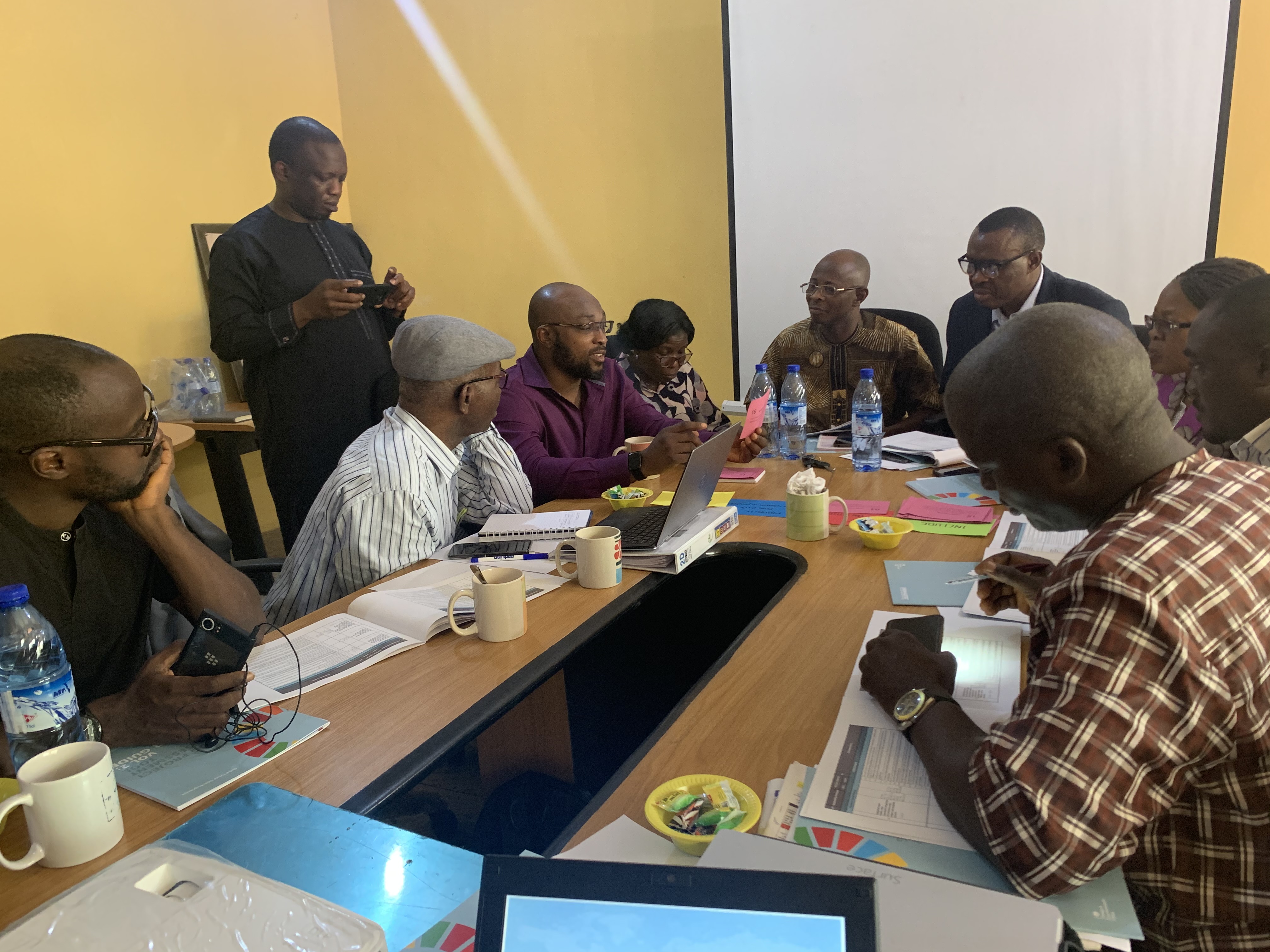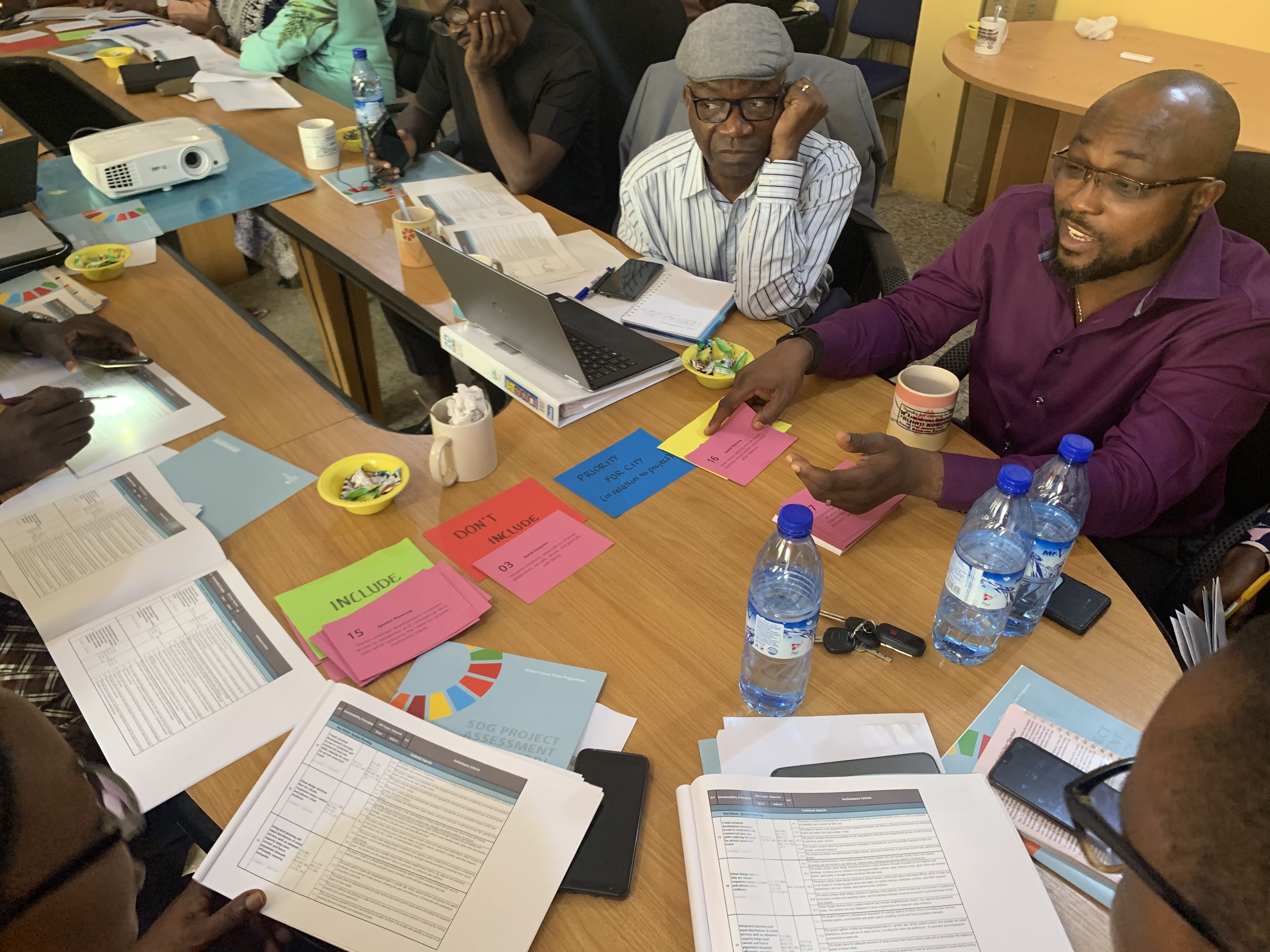Transforming public transport in Abeokuta: Impact of the GFCP
This is a brief story about Abeokuta, a city in Southern Nigeria, and how the Global Future Cities Programme has changed the outlook of transportation in this city surrounded by rocks. To get the full story I spoke to Engineer Tosin Akinleye, Director of Transport Policies & Coordination (formally known as Planning, Research & Statistics). He is the Focal Person for the City Authority on the Transportation component of the Global Future Cities Programme intervention in Abeokuta, Nigeria.
Abeokuta, the capital of Ogun state, southwestern Nigeria, is situated on the east bank of the Ogun River, around a group of rocky outcroppings that rise above the surrounding wooded savanna. It lies on the main railway (1899) from Lagos, 78 km south, and on the older trunk road from Lagos to Ibadan; it also has road connections to neighbouring cities and Kétou in Benin Republic. Abeokuta is an agricultural trade center (rice, yams, cassava, corn [maize], palm oil and kernels, cotton, fruits, vegetables) and an exporting point for cocoa, palm produce, fruits, and kola nuts.
The public transport system in Abeokuta is predominantly road based. Besides walking, which is the most common mode of transport for trips of short distances, road transport is the most widely used mode. Private car ownership is high with a large fleet of mostly second-hand vehicles on the roads. The public transport sector is dominated by private entities who use taxis, minibuses, tricycles and commercial motorcycles (popularly called Okada).
When asked about the current transport situation, Engr. Akinleye described it as chaotic, time consuming and dominated by various disorganised transport unions;
‘Public Transport could be best described as informal, uncoordinated and poorly regulated with motorcycles having the largest mode share followed by Shared Taxis. With the dominance of shared taxis and motorcycles running unscheduled trips, longer travel time was the order of the day as many commuters are forced to traverse needless routes before arriving their destinations. Lack of mass transit mode with its attendant adverse implication on affordability was detrimental to the predominantly low-income citizens at the receiving end of the undue arbitrariness in transport fare fixing.’
The Global Future Cities Programme intervention to develop a Public Transport Policy and build capacity in Abeokuta, started in 2020 and is now drawing to a close. The intervention aimed to support the Ogun State Government in better planning the public transport sector (Service, Operations, Infrastructure etc.) in alignment with Abeokuta’s urban planning. In the long run the aim is for these policies to improve accessibility and affordability while bringing some sanity to the public transport system.
To date the project has put in place policies that can ensure reliable, efficient, safe and affordable transport services in the City. The project has gone further than just developing policies but has also encouraged some structural changes in the Ministry of Transportation and other Ogun State Government ministries. Engr. Akinleye has been part of the project since inception and has experienced positive changes that can be directly attributed to the project. When speaking about the impact the Global Future Cities Programme has had he said,

‘The policy prepared is presently being proposed for replication in other cities of the State while some of its recommendations have been fully incorporated into the draft transport sector law. Also, an information sharing group is now in place to address the erstwhile 'silo' system of data/information handling.’
On a personal note, Engr. Akinleye, highlighted that through this intervention his perception on development initiatives has changed. Specifically on participatory processes, communications management, stakeholder's management and data management. He played a critical role in stakeholders management throughout the project and has therefore built his capacity in this field and has become an asset for the Ministry of Transportation. Quality stakeholder inclusion is lacking in Nigerian governance and being able to work with a variety of stakeholders (including transport operators, trade unionists, academics, professionals, regulators, traders, vulnerable groups etc) throughout the development of the transport policy is a success story. Engr. Akinleye commended the individuals and groups, including Future Cities Nigeria, UN Habitat and UKBEAG for sharing best practices and increasing exposure for opportunities to learn.
The main output from the Global Future Cities Programme in Abeokuta is the Public Transport Policy. The output, in less than 6 months of being completed, has already developed legs - being incorporated in the transport sector law and being replicated for other cities. The policy, championed by the Ogun State Ministry of Transportation, is changing minds, systems, and operations, giving hope that the future of public transportation in Abeokuta and Ogun State can be reliable, efficient, safe and affordable.

Country
Federal Republic of Nigeria
City
Abeokuta
Themes
Mobility
Author(s)

Olamide Udoma-Ejorh
Local Strategic Advisor - Nigeria, UN-Habitat